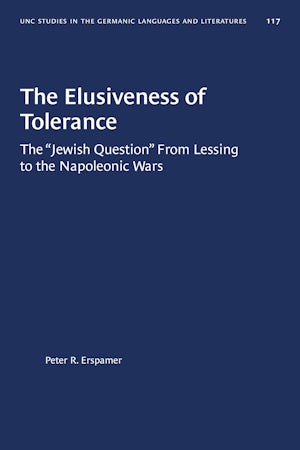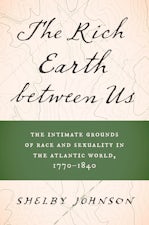The Elusiveness of Tolerance
The “Jewish Question” From Lessing to the Napoleonic Wars
By Peter R. Erspamer

208 pp., 6 x 9, notes, bibl., index
-
Paperback ISBN: 978-1-4696-1464-9
Published: April 2014
University of North Carolina Studies in Germanic Languages and Literature
Buy this Book
This title is not eligible for UNC Press promotional pricing.
Awards & distinctions
A 1997 Choice Outstanding Academic Title
Erspamer examines Nathan in light of Lessing's attempts to distance himself from the excesses of his own Christian in-group through pariah identification, using an idealized member of an out-group religion as a vehicle to attack the dominant religion. He also focuses on other leading advocates of tolerance and explores changes in Jewish identity, particularly the division of German Jewry into orthodox Jews, adherents of the Haskalah, and converted Jews.
About the Author
Peter R. Erspamer is visiting assistant professor of German at Fort Hays State University in Hays, Kansas.
For more information about Peter R. Erspamer, visit
the
Author
Page.
Reviews
"[Erspamer's] application of classic texts by Sartre, Said, Arendt, and Kristeva to the dynamics between majority and minority cultures emphasizes the dangers inherent in demands for either exclusion or complete assimilation and points to the relevance of the cautionary tales for today. This idea is not new, but it certainly bears repeating."--Monatshefte



